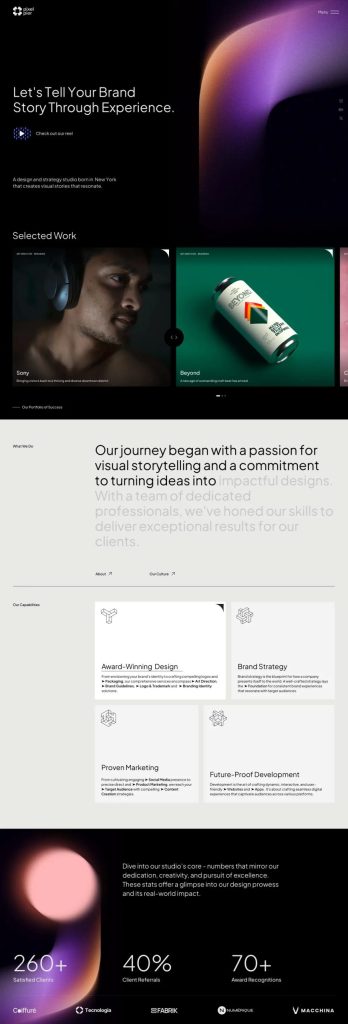In 2024, the field of artificial intelligence continues to evolve at an unprecedented pace, with notable advancements across various sectors. This article explores the latest developments, including newly released AI large models such as Google Gemini 1.5 Pro, emerging tools and APIs, specialized AI technologies, and innovative products targeting diverse industries.
One of the most significant breakthroughs in AI this year is the release of **Google Gemini 1.5 Pro**. This latest iteration enhances its predecessors with improved multimodal capabilities, allowing the model to seamlessly process and integrate text, images, and video data. The Gemini 1.5 Pro has a remarkable extended context understanding feature, which enables it to analyze larger inputs without sacrificing performance. Google’s investment in this large language model (LLM) significantly impacts user experience across various applications, especially in education and content creation, where context is paramount (Source: Google AI Blog, 2024).
In parallel, the industry has seen the introduction of several new tools and API solutions designed for diverse applications. **CrowdAI** has launched an API that simplifies the integration of AI into business workflows, enabling organizations to automate complex processes without requiring extensive AI expertise. This API incorporates cutting-edge machine learning models tailored for specific tasks, allowing businesses to deploy AI rapidly and effectively. This development is expected to enhance productivity in various sectors, including finance and logistics, where speed and accuracy are of utmost importance (Source: CrowdAI API Documentation, 2024).
The capabilities of these tools are further extended through the use of **Pipelines**, which facilitate the seamless connection of different AI models and services. These pipelines allow businesses to create tailored solutions that leverage multiple AI algorithms across their operations. For example, retail organizations can use Pipelines to combine customer behavior analytics and inventory management systems for better decision-making. The modular approach offered by these pipelines allows businesses to adapt and optimize their AI processes continually (Source: AI Tech Innovations, 2024).
Beyond general-purpose AI advancements, there is a rising trend in specialized AI technologies designed to address specific challenges in the industry. One such area of focus is the development of **more reliable and debiased LLMs**. Researchers have been actively working to enhance the fairness and accuracy of natural language processing models, addressing criticisms related to bias in AI outputs. The introduction of debiasing algorithms has shown promising results, leading to more accurate representations in applications ranging from customer service to content generation (Source: IEEE AI Journal, 2024).
The impact of these advancements is particularly evident in **AI for Behavioral Analytics**. Emerging technologies in this space are enabling organizations to gain deeper insights into consumer behavior by analyzing data from various sources, including social media, online transactions, and user interactions. With advanced machine learning techniques, businesses can personalize marketing strategies, predict trends, and tailor offerings to customer preferences more effectively. This shift toward data-driven decision-making is revolutionizing how companies interact with customers and optimize their services (Source: Business Insights Report, 2024).
As the landscape of AI continues to evolve, we are witnessing an influx of innovative products tailored for specific industries. In the **cybersecurity realm**, enhanced AI tools, such as anomaly detection systems, are being deployed to identify potential threats in real-time. These systems leverage advanced machine learning algorithms to analyze network traffic and user behavior, making it easier for organizations to detect and respond to cyber threats proactively (Source: Cybersecurity Daily, 2024).
In the **healthcare sector**, AI is making significant strides with the development of tools that assist in diagnostics and patient care. AI-powered diagnostic tools can analyze medical images with unprecedented accuracy, helping healthcare professionals make quick and informed decisions. For instance, recent AI applications have been shown to detect early signs of diseases such as cancer more reliably than traditional methods, offering the potential for improved patient outcomes (Source: HealthTech Innovations, 2024).
Similarly, in **business automation**, companies are increasingly turning to AI-driven solutions to streamline processes and enhance operational efficiency. For example, chatbots equipped with advanced conversational AI can handle customer inquiries autonomously, freeing up human agents for more complex tasks. This not only improves customer satisfaction but also optimizes resource allocation within organizations (Source: Business Automation Today, 2024).
Finally, in the **creative sector**, AI tools are reshaping the landscape of content creation. Companies are utilizing AI for generating innovative designs, writing content, and even composing music. These tools enable creatives to explore new ideas and enhance their productivity, pushing the boundaries of artistic expression. AI-generated art and literature are gaining popularity, prompting discussions about the nature of creativity and the role of technology in the arts (Source: Creative Tech Magazine, 2024).
In conclusion, the advancements in artificial intelligence in 2024 underscore the transformative power of this technology across various industries. From the release of sophisticated models like Google Gemini 1.5 Pro to innovative tools such as CrowdAI’s API and specialized solutions for behavioral analytics, the AI landscape is rapidly evolving. The intersection of AI with industry-specific applications, encompassing healthcare, cybersecurity, and creative sectors, showcases the potential for AI to enhance both operational efficiency and user experience. As we move forward, the continuous development of AI technologies promises to redefine how industries operate and interact with their customers, paving the way for a more automated, data-driven future.
For more information and the latest updates, consult credible sources like the Google AI Blog, IEEE AI Journal, and industry-specific publications that provide insights into the ongoing developments in this dynamic field.





























